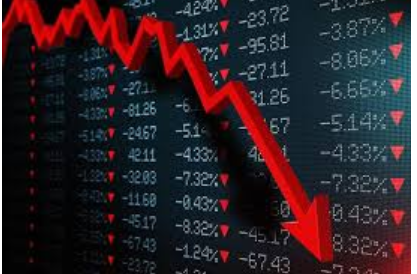Morgan Stanley vurderer effekten på coronakrisen i Emerging Markets. De kom hurtigt gennem finanskrisen i 2008, men det bliver helt anderledes denne gang. For det første véd vi ikke, hvor hårdt de rammes af virussen, og for det andet får de svært ved at dække finansieringsbehovet.
Uddrag fra Morgan Stanley:
Emerging markets recovered quickly from the 2008 financial crisis, but could a more challenging backdrop in 2020 mean a different outcome this time?
The coronavirus pandemic, which has made its way from Asia to Europe to the US, has now, unfortunately, begun to impact emerging markets and developing countries such as India, Brazil, Mexico, and many African countries.
Many emerging markets are highly open economies, so they are already suffering from a sudden stop in capital flows and an unprecedented drop in export orders from the rest of the world. On top of that, faced with weak health systems and densely populated cities, they have no choice but to put in place protracted lockdowns. This means domestic demand and supply in EMs will also be hit hard.
If we look back at the last global crisis, emerging markets actually recovered from the 2008 global financial crisis relatively unscathed. The question is, will 2020 be different? We believe it will be, at least for three reasons.
First, the starting situation is weaker now than in 2008. In many emerging markets, vulnerabilities such as public debt and current account deficits are much higher.
Second, China was able to keep economic growth above 9 percent in the aftermath of the 2008 crisis. But now China will be lucky to achieve even half that growth in 2020. This will inevitably translate into lower demand for goods and inputs supplied by other emerging markets.
Third, lower oil prices are obviously bad news for net oil exporters. But even for the vast majority of emerging markets that are net importers, a lower price may not help much. What use is cheap oil if no one is driving, flying, or running generators?
Faced with this difficult backdrop, how can emerging markets meet their financing needs?
The first line of defense is country’s foreign exchange reserves, which are backup funds in foreign currencies held by a nation’s central bank. However, if reserves fall quickly, it could alarm markets and even accelerate capital outflows and raise financing needs.
A second line of defense would be to activate bilateral or regional swap lines, which are credit lines from one country to another. For example, several large emerging markets can access the U.S. Fed’s swap lines.
A third line of defense is the International Monetary Fund. Low levels of IMF borrowing can be accessed easily and quickly, but higher access usually requires policy conditionality, which is contentious. That, more than the IMF’s lending capacity per se, seems to me more of an issue for some emerging market countries that may need assistance.
Finally, if the above buffers run out or IMF conditionality proves politically difficult, emerging markets may be forced to resort to controls, on imports and capital flows, and even debt restructuring and temporary standstills on payments to official and private creditors. For example, the G20 have already agreed to defer debt service on the official debt of low income countries. But the problem could extend beyond these countries and test the international monetary system.
So, as we move forward the markets will have an eye on two key factors. First, how successful are the emerging and developing economies in controlling the spread of the virus? And second, how successful are these economies in mobilizing the financing they need?
Emerging markets largely escaped the 2008 global crisis and recovered quickly. Let’s hope they prove as resilient this time, but a bumpy road definitely lies ahead.











